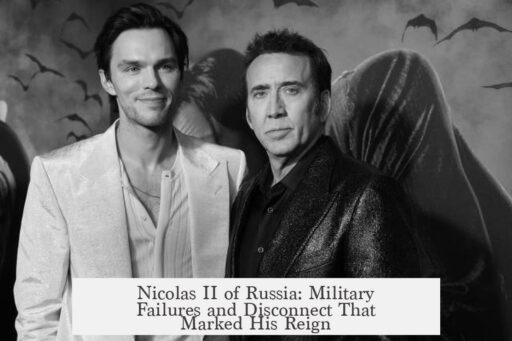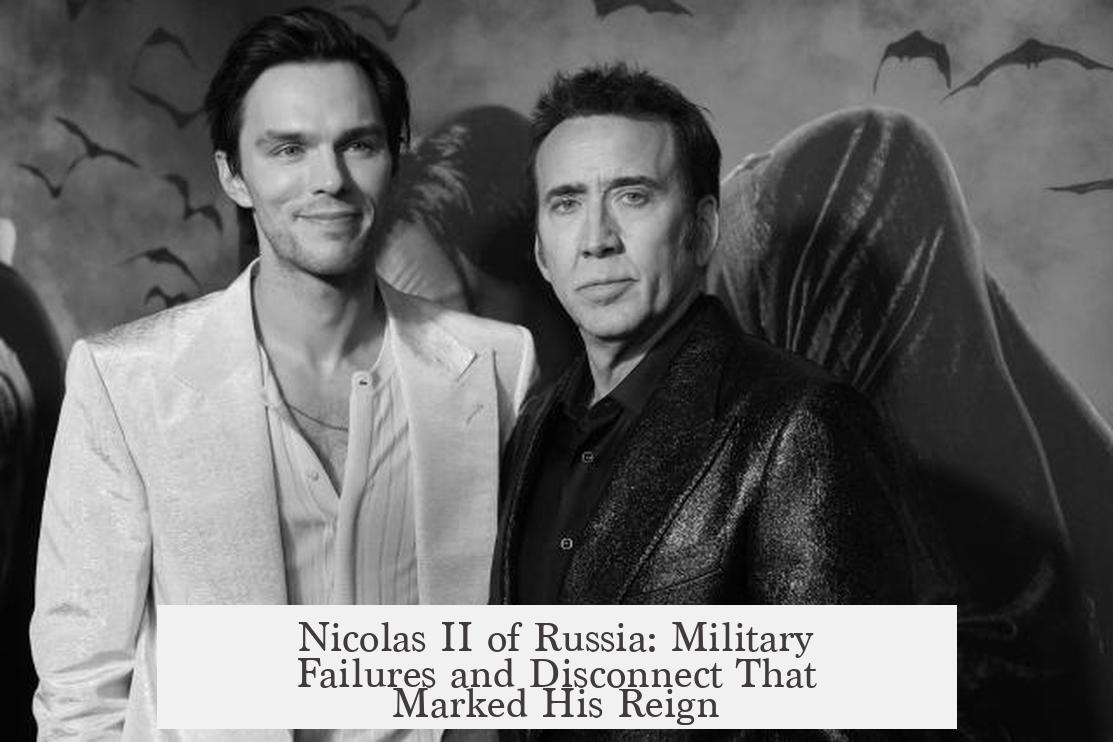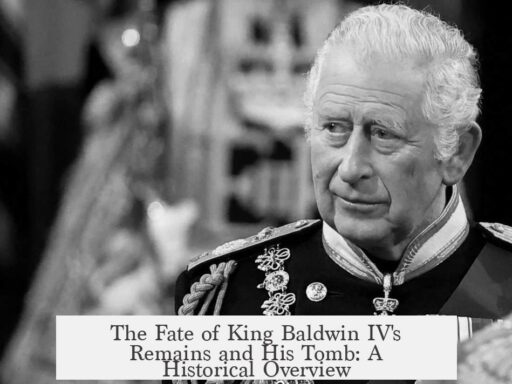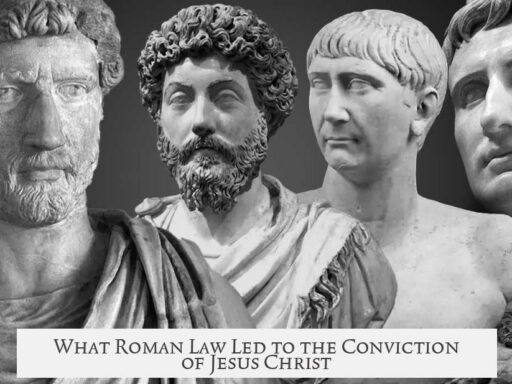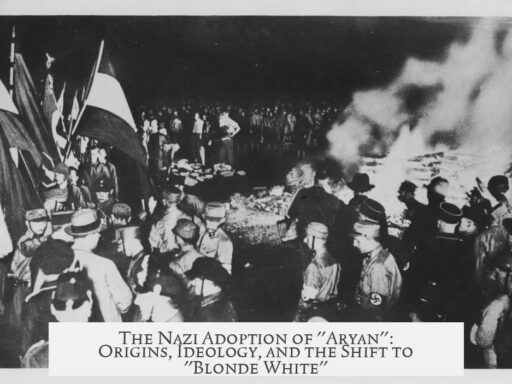Nicholas II of Imperial Russia is widely perceived as an incompetent ruler due to his failures in military leadership, inability to connect with his people, and poor handling of political unrest. His reign saw disastrous wars, social upheaval, and the collapse of the Russian Empire.
On the military front, Nicholas II’s reign is marked by significant failures. The Russo-Japanese War (1904-1905) ended disastrously for Russia. The empire suffered a humiliating defeat by Japan, the first major loss of a Western power to an Asian country in modern times. This defeat severely damaged Russia’s international reputation and undermined the emperor’s image at home. The destruction of the Russian Baltic Fleet at the Battle of Tsushima crushed the navy’s prestige and limited Russia’s ability to project power overseas.
The onset of World War I further exposed Nicholas’s military incompetence. He personally took command as the grand marshal, hoping to boost army morale. Instead, this move backfired spectacularly. Nicholas lacked strategic skills and became directly associated with the military disasters. The Russian army entered the war grossly unprepared. Approximately three million Russian soldiers died, many suffering from shortages of basic supplies like boots and weapons. His presence on the front lines did not improve the situation and led many to blame him for the failures of the war effort.
Nicholas II’s private nature and detachment from the public also played a role in the perception of incompetence. Unlike other monarchs who understood the importance of public engagement, Nicholas and his wife led secluded lives. They failed to connect with their subjects or address their concerns openly. The royal family concealed the severe illness of their heir, Alexei, who suffered from hemophilia. This secrecy fueled mistrust and rumors, further damaging the monarchy’s image.
A telling incident early in his reign was the coronation stampede of 1896. Hundreds of people died in a crush during the celebrations. Nicholas’s decision to attend a diplomatic dinner instead of publicly mourning the victims created the impression of insensitivity. Although he visited the victims afterward and the crown supported affected families, the initial reaction was seen as cold and disconnected.
The Tsar’s political decisions also contributed to the widespread view of incompetence. The Bloody Sunday massacre in 1905, where peaceful protesters were fired upon by Imperial Guards, sparked outrage. The event led to the Revolution of 1905, with widespread unrest and violence across the empire. Nicholas agreed to limited reforms, such as a constitution and a representative assembly (the Duma), but retained absolute veto power and military control. This half-measure neither satisfied reformers nor quelled opposition.
Nicholas’s failure to implement meaningful reforms left social and political tensions unresolved. He was too conservative to allow genuine change but too weak to prevent revolutionary movements. His government resorted to brutal repression, imprisoning and eliminating political opponents. The lack of effective governance deepened public dissatisfaction and instability.
World War I exacerbated existing problems. Food shortages, inflation, and deteriorating living conditions intensified public unrest. Support for various revolutionary factions grew as the empire’s military and economic situation worsened. Nicholas’s departure to personally oversee the war failed to strengthen the government. In March 1917, mounting crises forced him to abdicate, marking the collapse of the Russian Empire and monarchy.
| Key Failures | Impact |
|---|---|
| Russo-Japanese War defeat | Loss of prestige and international standing |
| World War I military leadership | Massive casualties and unprepared army |
| Detached personal style | Alienation from subjects and loss of trust |
| Failure to manage political unrest | Bloody Sunday, 1905 Revolution, repression |
| Inability to enact reforms | Persistent social tensions and growing opposition |
| Collapse in 1917 | End of Romanov dynasty and imperial rule |
- Nicholas II’s military failures began with the Russo-Japanese War and worsened in World War I under his personal command.
- His isolated lifestyle and secrecy about his family’s health distanced him from the Russian people.
- He mishandled public perception and political unrest, including the Bloody Sunday massacre and 1905 Revolution.
- Limited reforms failed to address systemic issues, and brutal repression alienated many.
- Economic hardship and war crises led to the fall of the monarchy in 1917 with Nicholas’s abdication.
Why is Nicolas II of Imperial Russia Perceived as an Incompetent Ruler?

Nicolas II of Imperial Russia is widely seen as an incompetent ruler mainly due to his poor military decisions, failure to connect with his people, inability to manage political and social unrest, and ultimately his role in the collapse of the Russian Empire. Now, let’s unravel why historians and the public alike have such a dim view of the last Tsar.
Picture this: a leader who jumps headfirst into wars he’s ill-prepared for, but seems oblivious about the state of his own people or his crumbling empire. That, in a nutshell, captures much of Nicolas II’s reign.
The Military Blunders That Shook the Empire
The military history alone makes a strong case against Nicolas II’s competence. The Russo-Japanese War (1904-1905) was not just a simple defeat; it was a historic blow. Russia became the first major Western power in recent memory to lose decisively to an Asian nation. Ouch.
Imagine the shockwaves back home—confidence in the empire’s military might plunged. Even worse, the Russian Navy suffered a catastrophic defeat during the Battle of Tsushima. Almost the entire Baltic Fleet was annihilated. No fancy ships left to flaunt. No naval power to project Russia’s influence abroad. The prestige of the navy took a nosedive.
But wait, the military mishaps didn’t end there.
When World War I came knocking, Nicolas II insisted on personally commanding the Russian troops as grand marshal. Sounds gallant, right? Not quite. The Tsar was notoriously bad at strategy. Worse, by taking direct control, the blame for Russia’s defeats landed squarely on his shoulders.
The Russian army was woefully unprepared—millions of soldiers went without basic boots and sufficient weapons. The death toll soared to about 3 million. The commander-in-chief was nowhere near competent, and morale tanked. Nicolas’s presence at the front did little to improve matters; it only made him the poster boy for failure.
The Emperor Who Couldn’t Connect With His People
Turning from the battlefield to the palace, Nicolas II’s private nature further isolated him from the Russian populace.
Unlike some rulers who mastered the art of public image, Nicolas and his wife, Alexandra, led intensely private lives. They kept their distance from their subjects instead of engaging and empathizing with them.
Adding to this disconnect was their secretive handling of their heir’s illness. Their son suffered from hemophilia, a serious blood disorder. Instead of being open or managing public awareness, the family hid the illness. This secrecy fueled distrust and suspicion among the public.
One of the most infamous early blunders that damaged his image was the coronation stampede incident. During the coronation festivities, a deadly stampede occurred, killing numerous people. While Nicolas attended a diplomatic dinner instead of publicly mourning, his actions appeared cold and detached. He did visit victims afterward and helped the families, but the damage to his reputation was done. Not the best way to start your reign.
Political Turmoil and Social Unrest: The Emperor’s Balancing Act That Failed
Nicolas II’s rule saw Russia on the brink of revolution multiple times, and his approach did little to mend the cracks.
One of the darkest chapters was Bloody Sunday in 1905. A peaceful demonstration aimed at petitioning the Tsar turned tragic when Imperial Guards fired on the crowd. Estimates suggest nearly 1,000 casualties. Although the Tsar himself didn’t directly order the shootings, the public squarely blamed him for the violence. This event shattered any faith commoners still had in their ruler.
The ensuing Revolution of 1905 forced Nicolas to introduce some reforms—a constitution and a form of representative government. However, he cleverly kept absolute veto power and control over the military. This half-measure angered both reformists and conservatives alike. The reforms were too weak to prevent unrest and too authoritative to quell revolutionary fervor. Nicolas, quite simply, found himself stuck in the awkward middle ground.
He also cracked down hard on rebels and political opponents. Imprisonments, executions, and harsh repression were common. This ruthless response widened the gap between the government and the people. The empire simmered with unrest that only got worse during World War I.
Food shortages, inflation, and worsening social conditions during the war festered long-standing issues. The government’s grip weakened, and revolutionary groups grew bolder. When Nicolas took command of the troops at the front, it didn’t inspire confidence or change the grim situation.
By March 1917, the empire collapsed as the provisional government took over and Nicolas II abdicated his throne, ending centuries of Romanov rule. The collapse wasn’t a sudden event but the result of years of poor decisions and failures to adapt.
Summing It Up: Why Historical Opinion is So Harsh
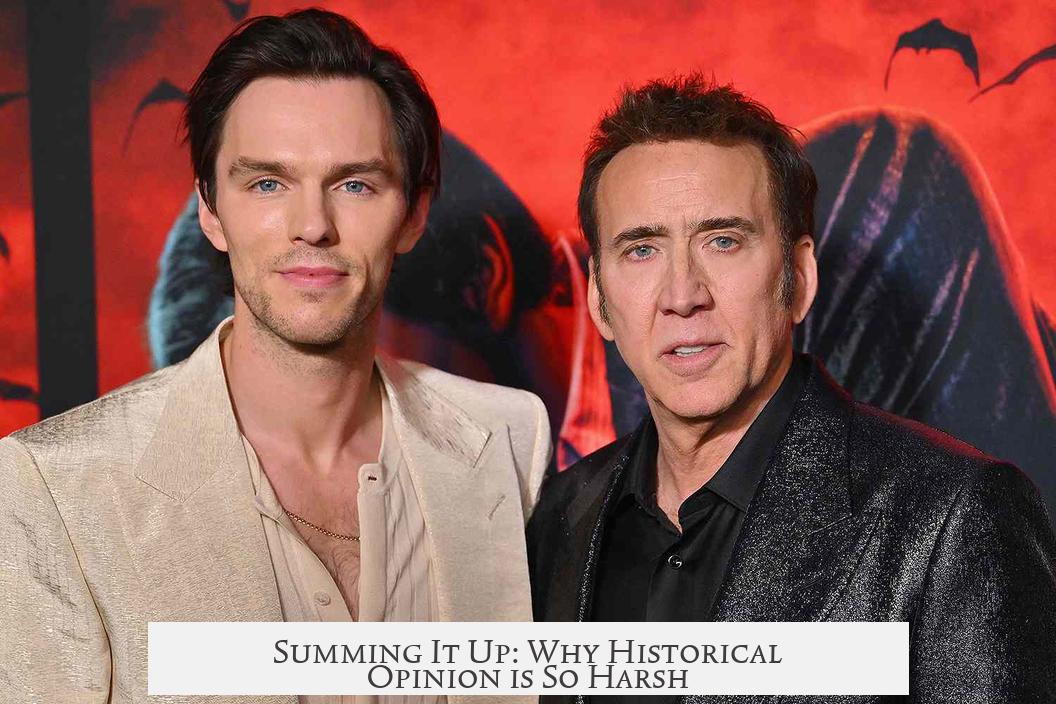
Nicolas II’s reign featured a pattern of critical errors. From disastrous military defeats and a failure to connect with his people, to political misjudgments and repression, he consistently lost the trust of his subjects and allies.
His refusal—or inability—to implement effective reforms left the Russian Empire vulnerable. When faced with challenges, Nicolas’s leadership lacked vision, tactical skill, and empathy.
Many historians agree that his personal decisions contributed directly to the weakening and eventual downfall of Imperial Russia. So, while he possessed the title of Tsar, his actions rarely reflected effective rulership.
Think about it: Could a ruler who can’t win wars, connect with the people, or manage political crises really sustain an empire? History says no.
Lessons From Nicolas II’s Reign For Today
- Don’t Ignore Your People: Public perception matters. Leaders need transparency and engagement, not secrecy and aloofness.
- Prepare Before Diving In: Going to war without adequate preparation is a recipe for disaster.
- Balance Reform With Authority: Half-measures can trigger more unrest than doing nothing.
- Own Your Decisions: Trying to shield oneself from blame erodes trust and authority.
In the end, Nicolas II’s story is a cautionary tale about leadership, responsibility, and adaptability. While history judges him harshly, understanding the complexities of his reign offers valuable insights for leaders of all times.
Why is Nicholas II blamed for Russia’s defeat in the Russo-Japanese War?
Nicholas II led Russia into a war it was ill-prepared for. The loss at the Battle of Tsushima destroyed Russia’s navy and international prestige. This defeat damaged the country’s standing and weakened the Emperor’s image at home.
How did Nicholas II’s role in World War I affect his reputation as a ruler?
He personally took command of the army despite lacking military skill. This linked him directly to Russia’s repeated defeats and heavy losses. His leadership failed to improve morale or readiness, causing many to blame him for the war’s disasters.
In what ways did Nicholas II’s private behavior hurt his relationship with the Russian people?
Nicholas and his wife led isolated lives and rarely connected with the public. They hid the heir’s serious illness and poorly managed public crises, like the coronation stampede. This distance made many feel he was out of touch with their struggles.
What was Nicholas II’s response to political unrest and demands for reform?
Nicholas reacted with limited reforms and harsh repression. He allowed a parliamentary body but kept strong veto power. His failure to implement meaningful changes or to effectively suppress revolts fueled ongoing social unrest and political opposition.
How did Nicholas II’s leadership contribute to the collapse of the Russian Empire?
His mismanagement during World War I worsened food shortages, inflation, and social conflicts. These issues, combined with failed reforms and military defeats, weakened the government. In 1917, the empire fell, and Nicholas abdicated, ending the monarchy.
